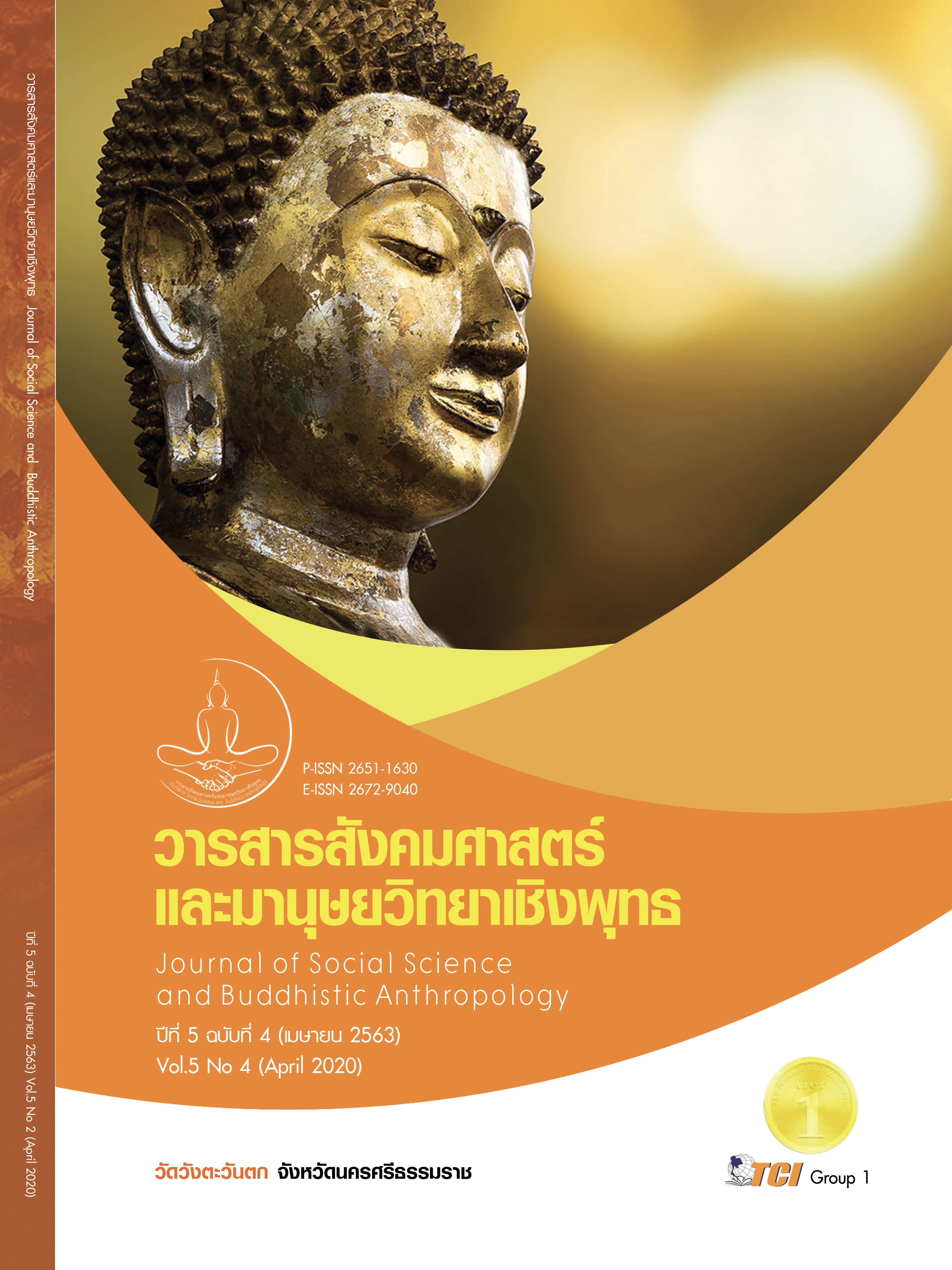MANAGERIAL EFFECTIVENESS OF BANGKOK MASS TRANSIT AUTHORITY
Keywords:
Management, Effectiveness, Bangkok Mass Transit AuthorityAbstract
This article of methods between qualitative research and quantitative research. To study the management effectiveness of the Bangkok Mass Transit Authority (BMTA) and study the effectiveness problems of management of the Bangkok Mass Transit Authority (BMTA), Use questionnaires and in – depth interviews as a research tool, The sample is representative of the population. Being an employee of the Bangkok Mass Transit Authority (BMTA), 357 samples and The qualitative research data providers were. Director BMTA Executive Group leader/BMTA supervisor 23 people. by purposive sampling The findings prove that: The effectiveness of management of the Bangkok Mass Transit Authority (BMTA), in general, is in the high level. Problems in the effectiveness of management of the Bangkok Mass Transit Authority (BMTA). Found that: 1) Organizational communication problems for example, the problem is not cooperated until the data cannot be used as the basis for the organization's policy goals and directions. 2) The regulatory agencies have inconsistent policies and objectives. Between the Ministry of Transport that focuses on public services and the Ministry of Finance that focuses on profits. 3) Changing the policy of the BMTA to buy or rent a bus in the last 10 years, found that there has been a change. 4) Problems from the organizational structure of the bureaucratic organization have created inefficient public services. and 5) The problem of lack of manpower in the computer field is system analysis and design department. Program and Machine and Service Operation Department System Design Analysis Department and technology risk management issues that may create security loopholes Authenticity And the availability of the service system.
References
ก้านทอง บุหร่า. (2559). แนวทางการปรับปรุงการรถไฟแห่งประเทศไทย วัตถุประสงค์สำคัญเพื่อศึกษาสถานภาพและปัญหาการบริหารงานของการรถไฟแห่งประเทศไทย และหาแนวทางการปรับปรุงการรถไฟแห่งประเทศไทย. วารสารวิจัยและพัฒนาวไลยอลงกรณ์ในพระบรมราชูปถัมภ์ สาขามนุษยศาสตร์และสังคมศาสตร์, 11(2), 279-288.
ติน ปรัชญพฤทธิ์. (2552). การพัฒนาองค์การสมัยใหม่. ใน เอกสารประกอบการสอนรายวิชา ADM 906. มหาวิทยาลัยเจ้าพระยา.
ธีรพัฒน์ อังศุชวาล. (2556). ปัญหาเชิงโครงสร้างของระบบราชการสมัยใหม่ (Modern Bureaucracy) กับการจัดทำบริการสาธารณะ. เรียกใช้เมื่อ 10 มกราคม 2561 จาก https://public-law.net/publaw/default.aspx
พภัสสรณ์ วรภัทร์ถิระกุล. (2558). ภาวะผู้นำ และวัฒนธรรมองค์การที่มีต่อผลสำเร็จในการพัฒนาองค์การสมัยใหม่: กรณีศึกษา สายงานปฎิบัติการนครหลวง บริษัทไปรษณีย์ไทย จำกัด. วารสารวิทยาการจัดการ มหาวิทยาลัยราชภัฎนครปฐม, 2(2), 1-11.
สำนักหอจดหมายเหตุแห่งชาติ. (2561). ประวัติ ขสมก. – บันทึกว่าด้วยเรื่องของรถเมล์ไทย. เรียกใช้เมื่อ 10 มกราคม 2561 จาก https://www.nat.go.th/
สืบพงศ์ สุขสม. (2561). การบริหารการพัฒนา. ปทุมธานี: โรงพิมพ์มหาวิทยาลัยธรรมศาสตร์.
สุชาดา กีระนันท์. (2541). เทคโนโลยีสารสนเทศสถิติ: ข้อมูลในระบบสารสนเทศ. กรุงเทพมหานคร: สำนักพิมพ์จุฬาลงกรณ์มหาวิทยาลัย.
สุพจน์ บุญวิเศษ. (2561). ประสิทธิผลในการบริหารงานขององค์การบริหารส่วนตำบลในเขตอำเภอเมือง จังหวัดชลบุรี. วารสารการเมือง การบริหาร และกฎหมาย , 10(2), 183-197.
องค์การขนส่งมวลชนกรุงเทพ. (2561). รายงานประจำปี 2560. กรุงเทพมหานคร: องค์การขนส่งมวลชนกรุงเทพ.
องค์การขนส่งมวลชนกรุงเทพ. (2562). แผนฟื้นฟูองค์การขนส่งมวลชนกรุงเทพ (ขสมก.). เรียกใช้เมื่อ 5 มกราคม 2561 จาก https://www.bmta.co.th/?q=th/services
Cronbach, Lee J. (1970). Essentials of Psychological Testing. (3rd ed.). New York: Harper and Row.
Daft, Richard L. (2001). Organization Theory and Design. (7th ed.). Ohio: South: Westem College Publishing.
Dension, D. R. (1990). Corporate Culture and Organizational Effectiveness. New York: John Wiley and Sons.
Gibson, L. J., et al. (1997). Organizations, Behavior Structure Processes. (9th ed.). United States: The McGraw - Hill Companies.
John W. Best. (1970). Research in Education. New Jersey: Prentice Hall.
Krejcie, R. V., & Morgan, D. W. (1970). Determining Sample Size for Research Activities. Educational and Psychological Measurement, 30(3), 607-610.
Max Weber. (1966). The Theory of Social and Economic Organization. Trans. By A.M. Henderson and Talcott Person, (4th ed.). New York: The Free Press.
Meranto, P. (1967). The Politics of Federal Aid to Education in 1965: A Study in Political Innovation. New York: Syracuse University.
Stevens, Robert., & Rosemary Stevens. (1970). Medicaid: Anatomy of a Dilemma. Law and Contemporary Problems, 35(2), 348–425.
Whittaker, B. (1999). What went wrong? Unsuccessful information technology projects. Information Management & Computer Security, 7(1), 23– 30.









